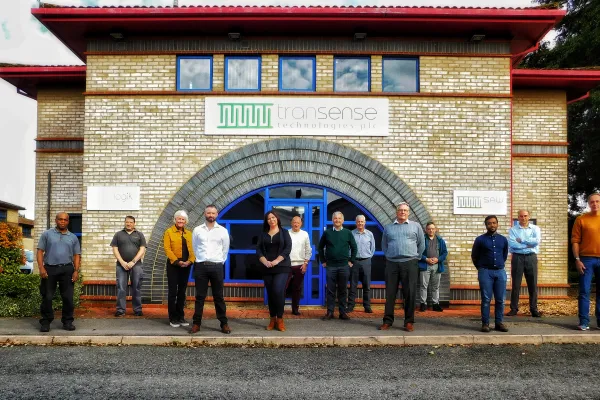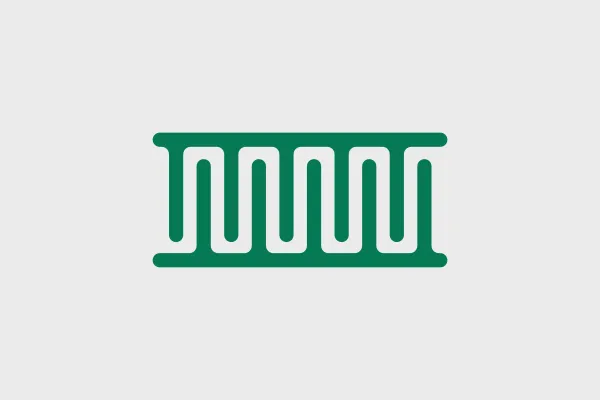
About
Transense develops and supplies innovative sensor technology and measurement solutions to world leading companies.
Investors
The following information is provided in accordance with Rule 26 of the AIM Rules, updated on 11 February 2026

The group aims to operate to high standards of moral and ethical behaviour. All members of the board fully support the value and importance of good corporate governance and in our accountability to all of the company’s stakeholders, including shareholders, employees, customers, distributors, suppliers, regulators and the wider community.
The corporate governance framework set out, including board leadership and effectiveness, remuneration and internal control, is based upon practices which the board believes are proportionate to the risks inherent to the size and complexity of group operations.
The QCA Corporate Governance Disclosures were updated on 7 April 2025
The board considers it appropriate to adopt the principles of the Quoted Companies Alliance Corporate Governance Code (“the QCA Code”) published in April 2018. The extent of compliance with the ten principles that comprise the QCA Code, together with an explanation of any areas of non-compliance, and any steps taken or intended to move towards full compliance, are set out below:
| Principle | Extent of current compliance | Commentary |
|---|---|---|
| Establish a strategy and business model which promote long term value for shareholders. | Fully compliant | Group business strategy is set out in the Chairman’s statement above. Strategic issues, and the appropriate business model to exploit opportunities and mitigate risks, are under continuous review by the board, and reported periodically. |
| Seek to understand and meet shareholder needs and expectations | Fully compliant | Regular meetings are held with shareholders at the release of interim and final results, together with a number of additional ad hoc meetings, any structured feedback given at these meetings is considered by the Board and acted on as appropriate. |
| Reflect wider stakeholder and social responsibilities and their implications for long term success. | Fully compliant | Directors and employees adopt a broad view during decision making to take meaningful account of the impact of our business on all key stakeholder groups. |
| Embed effective risk management, considering both opportunities and threats, throughout the organisation. | Fully compliant | The group operates a system of internal controls designed (to the extent considered appropriate) to safeguard group assets and protect the business from identified risks, including risk to reputation. Financial risks, including adequacy of funding and exposure to foreign currencies, are identified and subject to examination during the annual external audit process. |
| Maintain the board as a well-functioning, balanced team led by the chair. | Fully compliant | The board comprises six directors; the Executive Chairman, the Managing Director, the Chief Financial Officer and three independent non-executive directors. The non-executive directors are considered to be fully independent (Rodney Westhead has indicated that he intends to step down at the forthcoming AGM in November 2024, and the board has determined that it is appropriate to reduce the overall board size to five) The board are cognisant of the QCA Code’s requirement to have at least two independent non-executive directors, and the composition of the board is currently considered appropriate for the current size and complexity of the business. The Audit Committee comprises two independent non-executive directors, including one as Chair. Remuneration matters are determined by the Remuneration Committee comprising two independent non-executive directors, who take external advice where appropriate. An annual record of attendance at board meetings is included in the Annual Report at the conclusion of each year. |
| Ensure that between them the directors have the necessary up-to-date experience, skills and capabilities. | Fully compliant | The board is satisfied that the composition provides the degree of skills, experience, diversity and capabilities appropriate to the needs of the business. Steps are taken to challenge the status quo, and encourage proper consideration of any dissenting opinion. Board composition and succession planning are subject to continuous review taking account of the potential future needs of the business. |
| Evaluate board performance based on clear and relevant objectives, seeking continuous improvement. | Fully compliant | Board evaluation has not been carried out as part of a formal process, although the Chairman has actively encouraged self-evaluation by all board members, and feedback on the conduct and content of board meetings. The board will consider whether a more structured approach is required in future. |
| Promote a corporate culture that is based on ethical values and behaviours. | Fully compliant | The board promotes high ethical and moral standards. The board and all employees expect to be judged by, and accountable for, their actions and compliance with the Company handbook. Employees are encouraged to attend training courses and maintain CPD. |
| Maintain governance structures and processes that are fit for purpose and support good decision-making by the board. | Fully compliant | The board as a whole share responsibility for sound governance practices. The roles and responsibilities of each of the directors (including committee memberships) are clearly set out in their job descriptions and any particular responsibilities communicated and understood. |
| Communicate how the company is governed and is performing by maintaining a dialogue with shareholders and other relevant stakeholders. | Fully compliant | Regular meetings with shareholders and other key representative groups provide a specific opportunity for raising any concerns related to corporate governance, including any significant votes cast against or abstaining from shareholder resolutions. A record of meetings held to engage with shareholders will be included in each Annual Report. |

Transense develops and supplies innovative sensor technology and measurement solutions to world leading companies.

Transense leadership team

Information on our significant shareholders. Holder, shares and percentage held at time of last notification

Contact Information for Appointed Company Advisors
The Remuneration Committee is responsible for determining and agreeing with the Board the framework for the remuneration packages for Directors. The Remuneration Committee considers all aspects of the Executive Directors’ remuneration, including pensions, bonus arrangements, benefits, incentive payments and share option awards, and the policy for, and scope of any termination payments. The remuneration of the Non-Executive Directors is a matter for the Board. The Remuneration Committee meets at least twice a year and at such other times as may be deemed necessary. No Director may be involved in discussions relating to their own remuneration. Rodney Westhead is the sole member of the Remuneration Committee.
The Audit & Risk Committee’s principal functions include ensuring that the appropriate accounting systems and financial controls are in place, monitoring the integrity of the financial statements of the Company, reviewing the effectiveness of the Company’s accounting and internal control systems, reviewing reports from the Group’s auditors relating to the Company’s accounting and internal controls, and reviewing the interim and annual results and reports to Shareholders, in all cases having due regard to the interests of Shareholders. The Audit & Risk Committee meets at least two times a year, with regard to the reporting and audit cycle. Rodney Westhead has recent and relevant financial experience through his role as senior partner in a large firm of Chartered Accountants and CEO of other UK listed companies and acts as Chairman. Nigel Rogers the other member of the Audit & Risk Committee is a Fellow of the ICAEW and has several years’ experience of listed company financial reporting.
Transense Technologies plc is incorporated in England (Registration Number 1885075) which is also the main country of operation.
Articles of Association: Download (979kb)
The Company has not applied or agreed to have an of its securities (including its AIM securities) admitted or traded on any other exchanges or trading platforms
There are no restrictions on the transfer of securities
Dated 22nd October 2007: Download (1680kb)
The Company is subject to the provisions of the City Code on Takeovers and Mergers published by the Takeover Panel.

View or download copies of our Annual Reports, Financial Statements and Interim Results

View the latest announcements from Transense Technologies PLC

Share price updated every 15 mins. Current and historical share price (past five years).

View or download copies of our Annual General Meetings